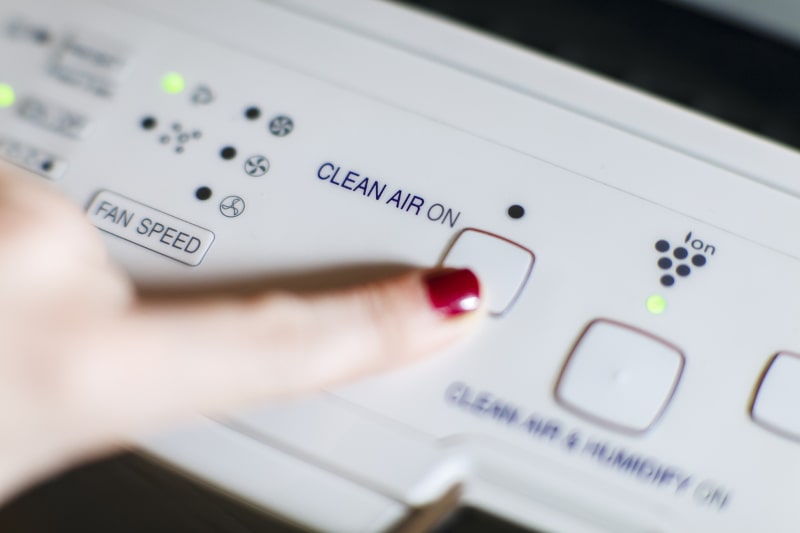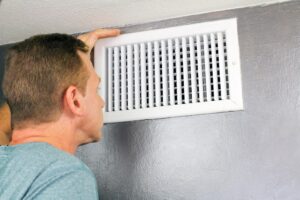If you have been spending more time at home in Bath, PA, whether working remotely or simply hunkering down as the weather changes, you may have had the chance to observe some things about your home. For instance, you may have noticed a unique smell in some areas or rooms where you can hardly stay longer than 30 minutes due to constant irritation and allergies. If that is the case, here are five things that impact the indoor air quality (IAQ) in your home.
1. Carpeting and Furniture
Indoor allergens like dust mites, biological contaminants, pollen, pet droppings, pet dander and other irritants often get trapped within the carpet fibers and furniture upholstery. When disturbed, they release these particles into the air, compromising IAQ.
Some carpets, furniture and fixtures may also emit volatile organic compounds (VOCs) into the air, especially during installation. However, these emissions are not fatal and usually only last a few days.
2. Poor Ventilation
Homes need proper air circulation to nourish and clean indoor air. Poor ventilation causes gas and particles to remain in the same air for much longer, increasing their concentrations or encouraging the breeding of biological contaminants.
It’s common to see moisture build-up, especially during the cold months with poor ventilation. The warm air indoors meets the cold surfaces of windows, creating a condensation effect that may cause problems such as dust mite proliferation. It may even wrinkle or peel your wall paint, releasing more particles into the air.
More importantly, poor ventilation means low oxygen levels. The carbon dioxide you release when you exhale and carbon monoxide from certain appliances will build up, leading to dizziness and headaches.
3. Cleaning Products
The chemicals used in cleaning products, such as detergents, all-purpose cleaners and sprays, can linger in the air for hours. Most release toxic fumes that irritate people’s eyes, throats and lungs.
4. Cooking
As surprising as this may sound, if you cook food inside your home, by default, you are releasing harmful pollutants into the air. However, the type and amount of emissions depend mostly on what you use to prepare your food.
Cooking methods that rely on fossil fuels such as natural gas or propane are the biggest culprits because they release carbon monoxide, formaldehyde and nitrogen dioxide into the air. Electric ovens and cooktops are much safer. Frying anything on an electric or gas burner is harmful because hot oil emits polycyclic aromatic hydrocarbons that are bad for your eyes and respiratory health.
5. HVAC Systems
Poorly maintained or incorrectly installed HVAC systems may introduce contaminated air into your home. If you take too long to clean or replace your air filters, these particles will start coming back into your home, now more dangerous than ever, because they collect bacteria and other hazardous microorganisms while trapped.
The same principle applies to ducts that, if not properly sealed, may allow the attic air or outside air to enter your home. Not all outdoor air is pure; it may bring dust, pollen and other contaminants from fields and buildings adjacent to your house.
Improving IAQ
The first step is to clean everything in your house that may accumulate dust, dirt or other particles. Vacuum the carpets and rugs once or twice a week using a vacuum cleaner equipped with HEPA filters. Clean and change bedding, drapes and upholstery frequently, and dust the furniture, shelves and countertops using a damp cloth.
Next, consider investing in a whole-home air purifier, especially if you have a family pet. The best models have multiple filtration stages, including activated carbon filters for odor control, true HEPA filters for trapping allergens and ultrafine particles and UV-C light technology for killing bacteria and viruses.
Finally, maintain your HVAC systems, ensuring they are always working efficiently. Change the filters frequently, clean or replace ducts as needed and keep outdoor vents closed when not in use.
Cleaner IAQ improves cognition and productivity, reduces allergies and other health issues and keeps your home fresh and inviting. Contact Sullivan Oil & Propane in Bath, PA, today to assess your indoor air quality and make improvements.
Image provided by iStock



